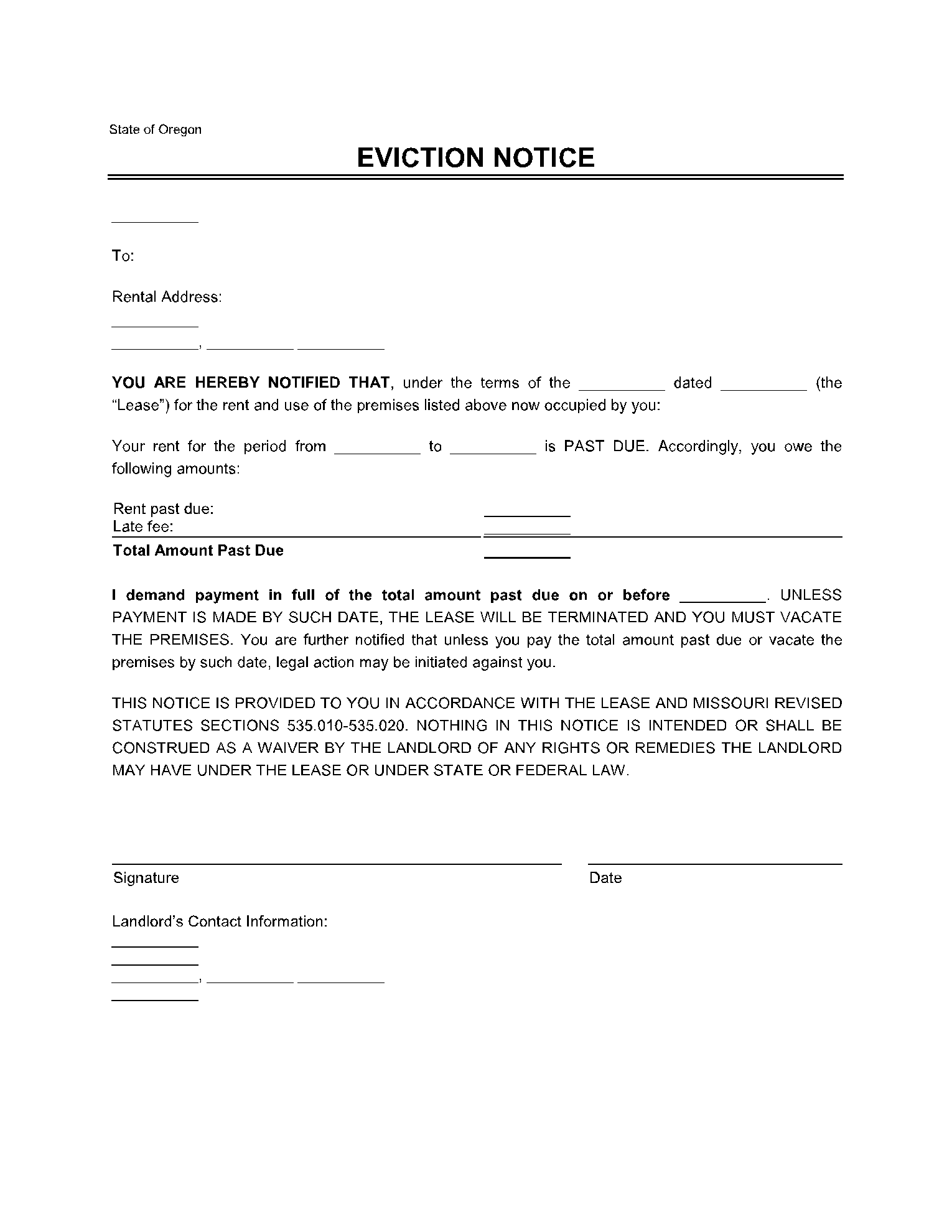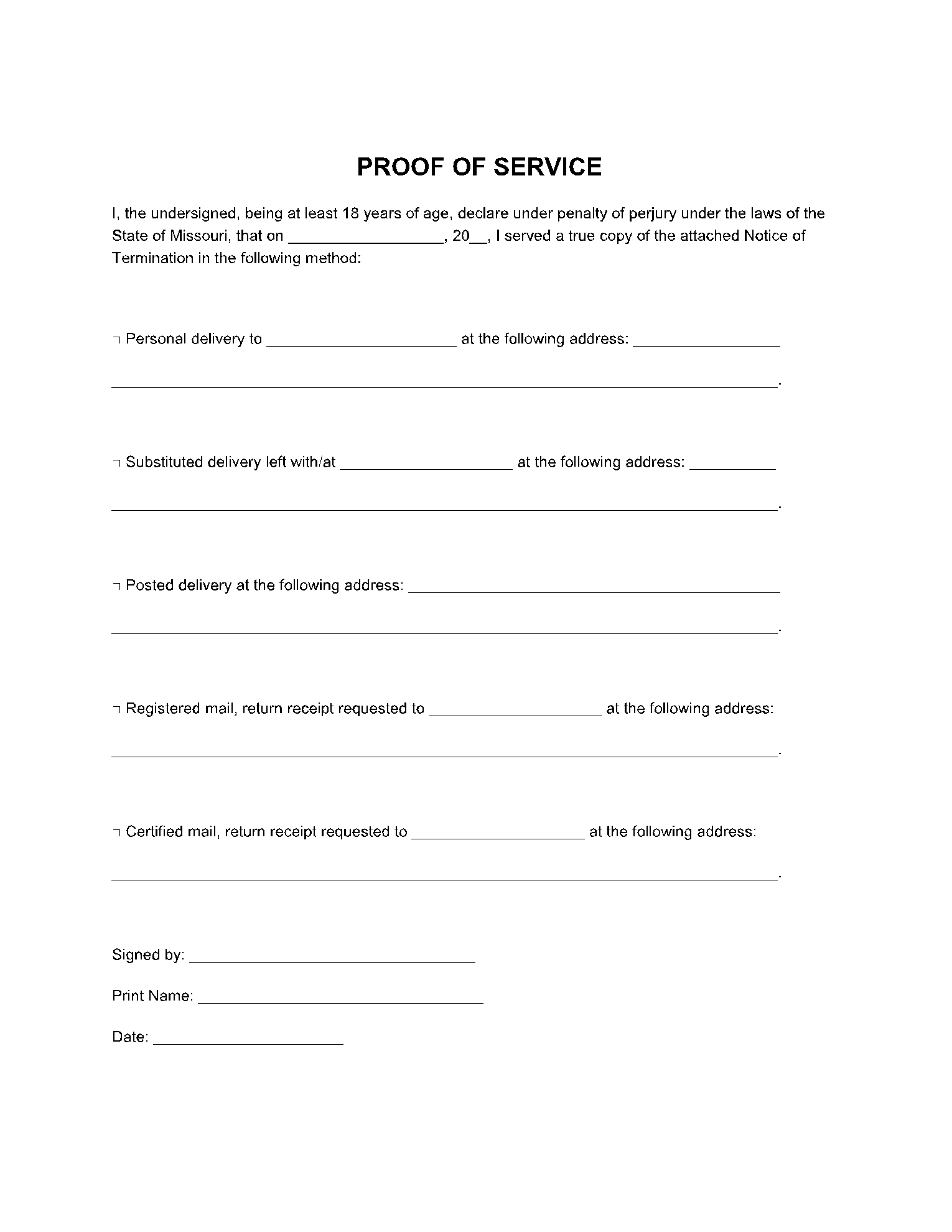Real estate is the business that works entirely on the relationship between tenants and their landlords. Property owners always love their tenants, but sometimes no matter how hard they try, issues can arise. A landlord is the property owner, and even if the property is rented out, the landlord has all the rights to vacate the property using an Oregon eviction notice.
An agreement is made between both parties, tenants, and the landlord at the time of renting out. Termination of that lease agreement between owner and tenant leads to an eviction notice by the landlord to the renter, asking them to leave their premises.
What Is an Oregon Eviction Notice?
In the State of Oregon, an eviction notice is the first step that a landlord takes if a tenant violates the lease agreement. It acts as documented proof of notifying the tenant of his breach and can be used in future legal correspondences if the need arises.
In the State of Oregon, the notice must comply with all the laws of the state and must keep in view the rights of the tenant as well. In case of any violation of both of these prospects, the application of the landlord is not considered, and he has to start over the process from the beginning.
Why Do You Need an Eviction Notice?
The most common reasons calling the landlord to vacate their place are:
- Any illegal act in their premises
- Non-payment of rent.
- Violation of lease between tenant and landlord
- Termination of the month to month tenancy
Landlords must carefully follow all the terms and conditions required by Oregon law when evicting a tenant; otherwise, the eviction might not be valid. Although these rules and procedures could seem burdensome to the owner, they're there for a reason.
Evictions often occur very quickly, and therefore the final result is quite severe for the tenant who loses an area to survive. Consequently, the legal laws help make sure the eviction is justified, and the tenant has enough time to seek out a replacement home
What Is the Eviction Process in Oregon?
In Oregon, a landlord has two options to give a tenant, an eviction notice for not paying rent or legal help. However, if the owner provides the notice after only five days from maturity, the notice must give the tenant six days, or 144 hours, to pay the rent or the owner can begin legal eviction proceedings.
There are four types of eviction notices in Oregon,
- 24-hour notice to quit, filed in case of any illegal or dangerous activity.
- 6 Day notice to quit, in case of non-payment of rent.
- 10 Day notice to quit, for the tenant to rectify the non-compliance or vacate the property in thirty days. If it's the tenant's second violation of a similar breach within the last six months, the owner can cancel the lease and can ask the tenant to vacate within ten days' notice.
- 30 Day notice to quit, for termination of month to month lease of property.
What Are the Requirements for Eviction Notice in Oregon?
An eviction notice must highlight all the information, including why the notice was sent, what the tenant must do, and the deadline for action by the tenant.
All these details must be included in order to make the notice considerable for the tenant because if not done properly, the tenant is never going to take the notice seriously. The following stated are some important points to be added in the notice,
- The title for the eviction notice. This generally includes the kind of eviction notice (such as a notice to quit for an illegal act) and, therefore, the number of days prescribed by Oregon law, that the tenant must rectify the problem or vacate the property.
- The date that the eviction notice was created. The date is especially important in Oregon because an eviction notice for unpaid rent might not be issued until the rent is five days late.
- Name of the inhabitant of property who signed the lease agreement.
- The full address of the premises, including Zip code, city or town, and county of the rental property.
- A detailed description of the eviction notice.
- The date by which the tenant must either adjust to the lease or vacate the property.
- The printed name of the owner or agent.
- The contact information, including the sign, for the owner or their agent.
Conclusion
All the requirements stated above are the necessary formalities that you need to follow while filing an eviction notice. We hope this helped you understand the basics of the Oregon Eviction Notice. If it does, check the CocoSign website for where we have got lots of useful stuff for you, including a free eviction notice template.


